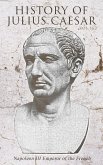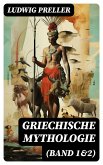In 'History of European Morals From Augustus to Charlemagne,' William Edward Hartpole Lecky meticulously examines the evolution of moral philosophy and social ethics from the Roman Empire through the early Middle Ages. Employing a narrative style that intertwines historical analysis with philosophical inquiry, Lecky elucidates how cultural and religious shifts shaped moral thought during this pivotal era. His work is situated within the broader context of 19th-century historiography, where the interplay of social and moral progress was a burgeoning area of interest, establishing a framework that still informs contemporary moral discourse. Lecky, an eminent Irish historian and philosopher, was driven by a commitment to understand the foundations of modern morality in the light of historical developments. His scholarship reflects the influences of Enlightenment thinking and his own experiences in a rapidly changing Victorian society, which fostered his desire to explore the past's impact on present ethical conditions. Through keen observation and dedicated research, Lecky provides readers with profound insights into the complexities of moral evolution. This comprehensive exploration is highly recommended for anyone interested in the intersections of history, philosophy, and ethics. Lecky's work not only illuminates the past but also invites contemporary readers to reflect on how historical morals continue to resonate in modern moral dilemmas. Engaging with Lecky's seminal text offers invaluable perspectives that are as pertinent today as they were in his time.
Dieser Download kann aus rechtlichen Gründen nur mit Rechnungsadresse in A, B, BG, CY, CZ, D, DK, EW, E, FIN, F, GR, H, IRL, I, LT, L, LR, M, NL, PL, P, R, S, SLO, SK ausgeliefert werden.









